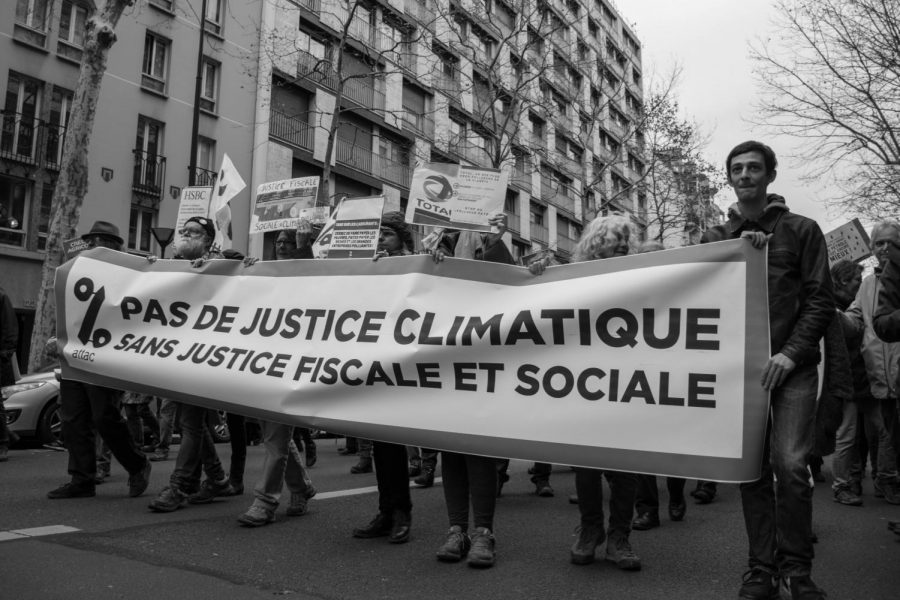French protests are about social issues, not just climate change
Protesters march against climate change in Paris on Dec. 8. Columnist Agastya argues the march demonstrates much more than environmental awareness.
January 17, 2019
In what is now business as usual, the 45th president of the United States declared in an early-morning tweet that the Paris Agreement was to blame for the protests that have caused Paris to descend into chaos.
As irony has it, the gilets jaunes are revolting against nothing more than leaders exactly like Donald Trump: leaders who are both detached from and bear a disdain for the poor and disenfranchised. The protests in Paris were indeed triggered by a newly announced “green tax” on fuel, but conflating the French public’s anger with a rejection of climate change policy is wrong and dangerous.
By creating a negative narrative around green policies, Trump is only further misleading the public, taking away from how critically important it is to enact truly effective measures against climate change.
French President Emmanuel Macron’s fuel tax, however, reflects everything but a social liberal agenda. The tax forces the working classes of France, those who do not have access to public transport and rely wholly on personal vehicles to commute, to bear the brunt of correcting the damage climate change was wrought.
As has been the trend for most of the French president’s term, the fuel hike proves once again that he is no different than other career politicians who play to the wealthy elite, such as powerful corporations whose disregard for clean emissions standards are far more responsible for environmental decline than ordinary members of the populace.
Get The Daily Illini in your inbox!
The French protests are not about taxes to protect the environment — they’re about social justice, equity amongst classes and a leader who fails to understand and refuses to act on these issues. Despite being a media darling upon his election, Macron’s rise to the presidency, and his actions thereafter, were not unlike that of Trump. Initially positioning himself as a friend of the proletariat, he quickly cemented himself as the “President of the Rich,” with tax reform clearly amended to appease the wealthy and an alarmingly obtuse contempt for the poor. It is unsurprising then that more than 80 percent of French citizens support the Yellow Jacket movement.
Even after a rollback of the tax in a response to quell public anger, protestors were not placated. The fuel hike was merely a tipping point for a country already frustrated with an increasingly detached elite class, lack of social security and a growing disparity in wealth.
In a progressive, highly developed economy and society, this is unacceptable. Elected officials should not be complicit in allowing any member of society to shirk off their responsibilities toward the social institutions upon which democracies are built — least of all the rich and powerful.
President Macron is now, not unexpectedly, facing the consequences of doing just that. On this side of the Atlantic however, President Trump should be wary of the effects of his current policies and when the tide of populism inevitably turns against him.
Agastya is a sophomore in LAS.







